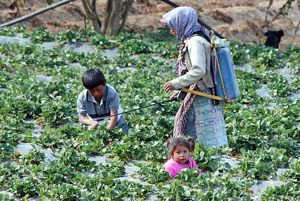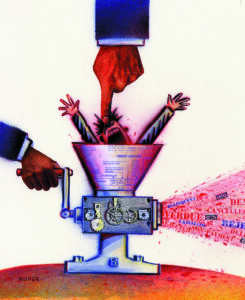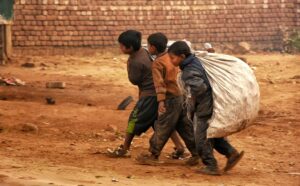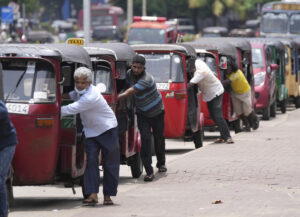Global Food Scheme Starves Guatemalan Poor
Due to predatory trade policies endorsed by the IMF and the Guatemalan government, tax-evading transnational corporations partnered with local elites make a killing off the country's agricultural exports while more than half of its 14 million people suffer extreme poverty and threats of violence. (more)
Due to predatory trade policies endorsed by the IMF and the Guatemalan government, tax-evading transnational corporations partnered with local elites make a killing off the country’s agricultural exports while more than half of its 14 million people suffer extreme poverty and threats of violence.
Decades ago, Guatemalan farmers produced enough grain to feed themselves, but a 1980s IMF-led trade program forced them to abandon staple foods in favor of crops in demand on the international market, promising that the arrangement would enable the country to pay off its heavy national debt. Once those crops leave the hands of Guatemalans, however, international traders raise the prices, and taxes on export revenues are not high enough to pay off the country’s outstanding charges. Meanwhile, the average Guatemalan laborer endures a permanent state of debt and servitude, working with highly toxic chemicals for roughly $190 a month, 80 percent of which goes toward paying international prices for imported foods. –ARK
Your support matters…Guardian:
Guatemala is a prime example, according to a report by Oxfam, of how the global food system is failing. The organisation predicts that the average price of staple foods will double by 2030. “Spiralling food prices, climate chaos, rising demand on top of a collapsing resource base, and markets rigged against the many in favour of the few” are, the charity warns, taking us into a new era of crisis in which more and more people are going hungry.
… Developing countries such as Guatemala are on the frontline. Half of all the nation’s children under five are malnourished – one the highest rates of malnutrition in the world. Yet the country has food in abundance. It is the fifth largest exporter of sugar, coffee and bananas. Its rural areas are witnessing a palm oil rush as international traders seek to cash in on demand for biofuels created by US and EU mandates and subsidies. But despite being a leading agro-exporter, half of Guatemala’s 14 million people live in extreme poverty, on less than $2 a day. And the indicators are getting worse. The money to be made from the food chain here, as in most poor countries, has been captured by elites and transnational corporations, leaving half the population excluded.
… Although the government disputes it, Oxfam believes that Cafta, the free trade agreement between the US and Central American states approved in 2005, has undermined farmers further as subsidised US grains have poured in. (Industrialised areas, including the US and the EU, subsidise their farmers to the tune of $252bn a year, making it impossible for small farmers in developing countries to compete.)
Independent journalism is under threat and overshadowed by heavily funded mainstream media.
You can help level the playing field. Become a member.
Your tax-deductible contribution keeps us digging beneath the headlines to give you thought-provoking, investigative reporting and analysis that unearths what's really happening- without compromise.
Give today to support our courageous, independent journalists.






You need to be a supporter to comment.
There are currently no responses to this article.
Be the first to respond.